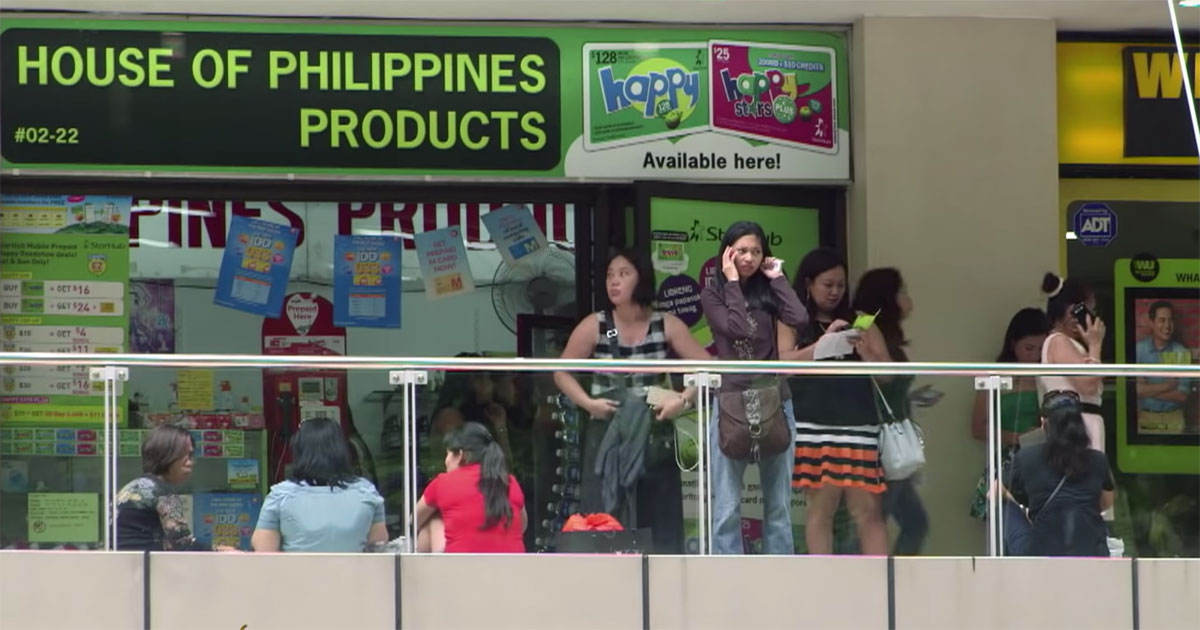Say what again?
A minority group of Singaporeans continue to put Singapore to shame in their treatment of others.
In December 2018, the Singapore government, via the Ministry of Manpower, had to issue a reminder to Singaporeans to feed their foreign domestic helpers at home.
Why is this even happening?
This phenomenon is beyond shocking precisely because this sort of thing can happen in Singapore where cheap food is in abundance.
The appalling treatment of foreign domestic helpers is perhaps due to how some Singaporeans, who are employers, view hired hands as salaried workers, and not exactly part of the household.
It could also be a function of how the domestic helper industry has been commoditised.
How prevalent is the problem?
There were at least a few hundred such cases of foreign domestic workers being undernourished last year.
This problem was brought to light by the media.
The Channel NewAsia headline actually read: “Domestic workers must be given enough to eat when employers are away: MOM, NGOs”.
The report highlighted the holiday season as when undernourishment occurs more often, due to employers leaving Singapore to go on holidays and leaving inadequate food and money behind.
The helpers are expected to pay for their own expenses using their own money.
Problem is year-long
But there have also been plenty of reports of foreign domestic workers who experience not being properly fed throughout the year.
Concerns about food and nutrition are one of the top five issues raised by foreign domestic workers.
There are currently some 250,000 foreign domestic workers employed in local households.
Even though a few hundred cases a year might appear small in proportion, any one case is already one case too many.
Trend doesn't seem to be abating
Local non-governmental organisations Transient Workers Count Too (TWC2) and Humanitarian Organisation for Migration Economics (HOME) said they are seeing more complaints from workers about inadequate or poor quality food.
Some FDWs have even resorted to posting on over a dozen threads on Facebook groups that give foreign domestic workers advice and support, about their concerns about not being able to eat well when their employers are away.
What has the Singapore government said?
The Ministry of Manpower’s (MOM) requirement is that employers have to provide FDWs with three meals a day and these have to be enough for a female engaged in moderate activity.
This includes four slices of bread with spread for breakfast, and rice, cooked vegetables, a palm-sized amount of meat, and fruit for lunch and dinner.
MOM also had to explicitly say that employers are required to provide adequate food and fulfil all obligations relating to the employment of a foreign domestic worker, regardless of whether the employer is in Singapore or overseas.
It added that all first-time foreign domestic workers attend a mandatory programme that advises them on what to do if they face well-being issues, besides providing legal protection.
Those who feel that they are not given adequate food should speak to their employers or their Employment Agencies, or contact MOM or the Centre for Domestic Employees (CDE), which is NTUC's advocacy group for foreign domestic workers.
Foreign domestic worker abuse
Most troubling of all are the persistent cases over the years of Singaporeans abusing their foreign domestic workers, despite such perpetrators being rebuked and punished time and again in court.
The recent series of stories in the local media about foreign domestic worker abuse is a shocking reminder that sometimes human decency cannot be taken for granted.
A broken nose and swollen eye
On Feb. 23, The Straits Times reported that an employer, Jenny Chan, pleaded guilty to three assault charges, including one count of causing grievous bodily harm to Rasi, her helper.
Rasi had only been working for Chan for two months before the abuse started.
The injuries sustained included a broken nose and an eye that was beaten so swollen she couldn’t see out of it for 30 minutes.
Chan had also hit Rasi on the back of the head with a plastic bowl, causing her to bleed.
Forcing her to self-harm
This follows another ST report from Feb. 12, where a couple, Linda Seah and Lim Toon Leng, were both jailed for abusing their helper from Myanmar, Phyu Phyu Mar.
They had forced her to perform acts of self-harm, which included scalding herself with hot water, drinking dirty water mixed with detergent, and ordering her to hit her head against the floor.
The helper's weight had dropped from 50kg to 38kg due to a lack of food.
Seah received a three-year jail sentence, while Lim was given a six-week sentence. They were both also ordered to pay a total of S$12,300 in compensation to Mar.
Many previous cases
And that’s only reports from the month of February.
A quick google search turns up years of news reports where foreign domestic workers have been on the receiving end of abuse from their employers.
It’s no wonder local non-governmental organisations, such as TWC2, feel the need to remind employers to look after the welfare of FDWs.
Foreign domestic workers up to no good too, no?
Yes, there have been instances of foreign domestic workers leveraging the law to wrongly accuse their employers of abuse, but such cases should not even be used as a basis of not treating helpers properly.
More info
For more information on the laws governing the employer's relationship with foreign domestic workers, you can refer to the MOM’s employer's guide.
For greater insight into the life of a domestic helper read this:
Top screenshot from Al Jazeera English YouTube
If you like what you read, follow us on Facebook, Instagram, Twitter and Telegram to get the latest updates.
